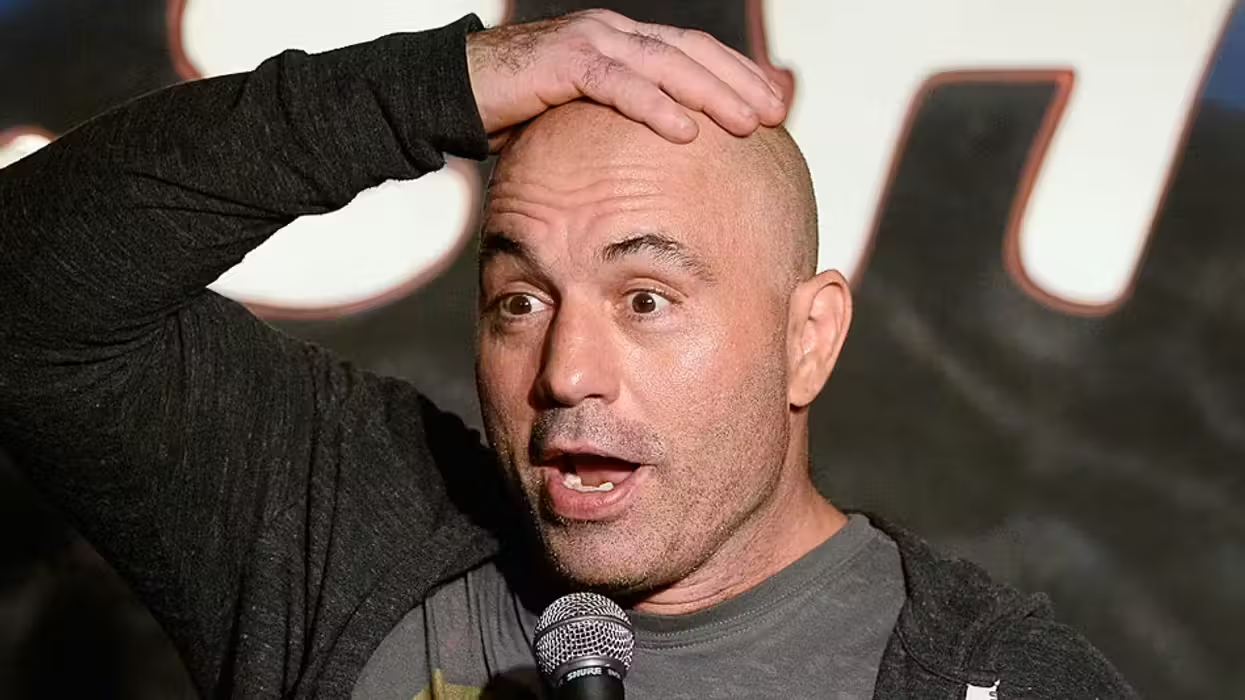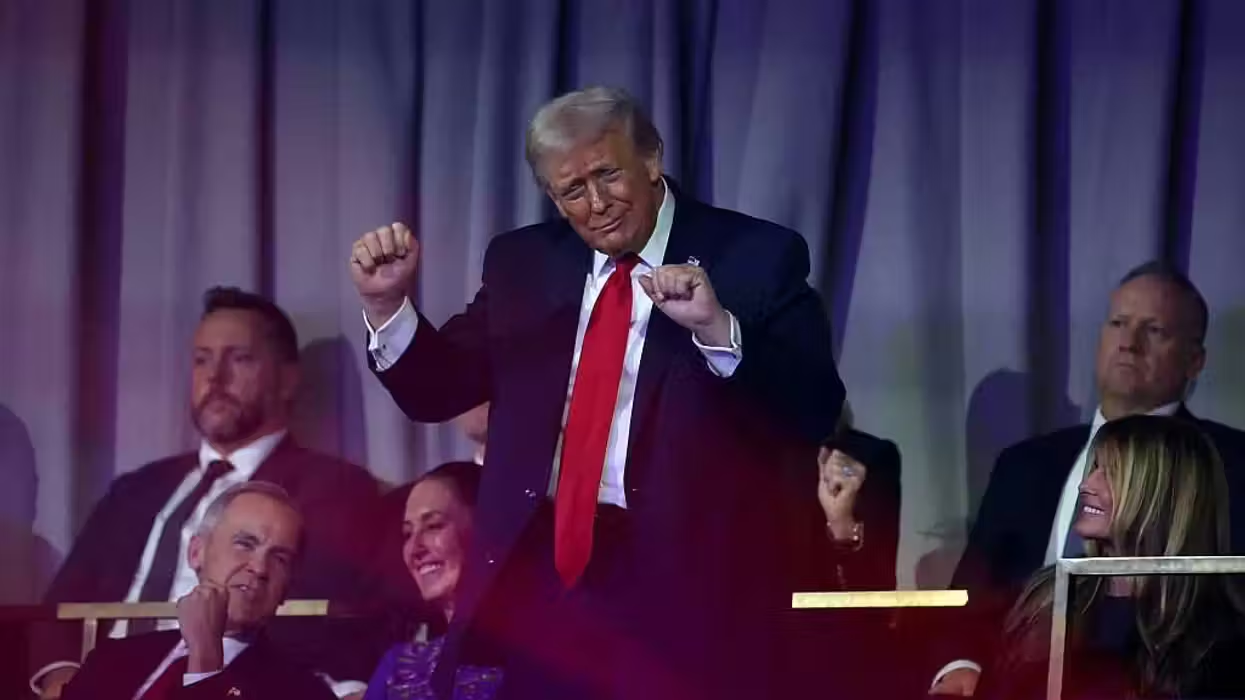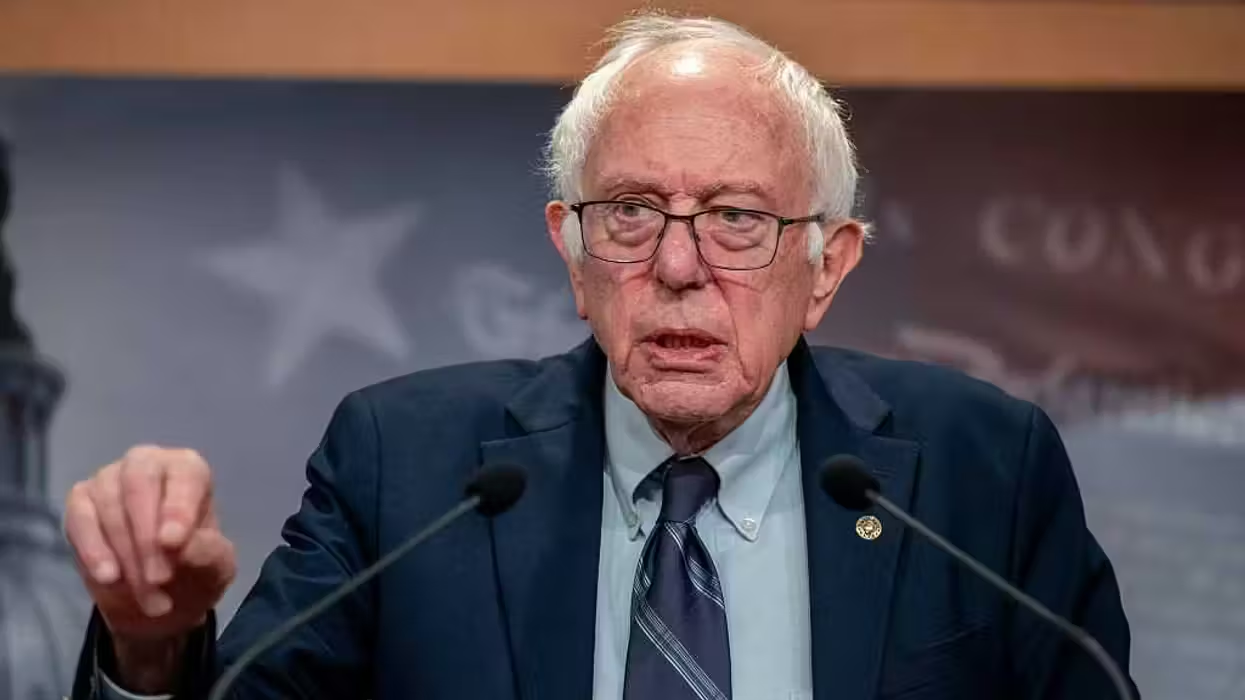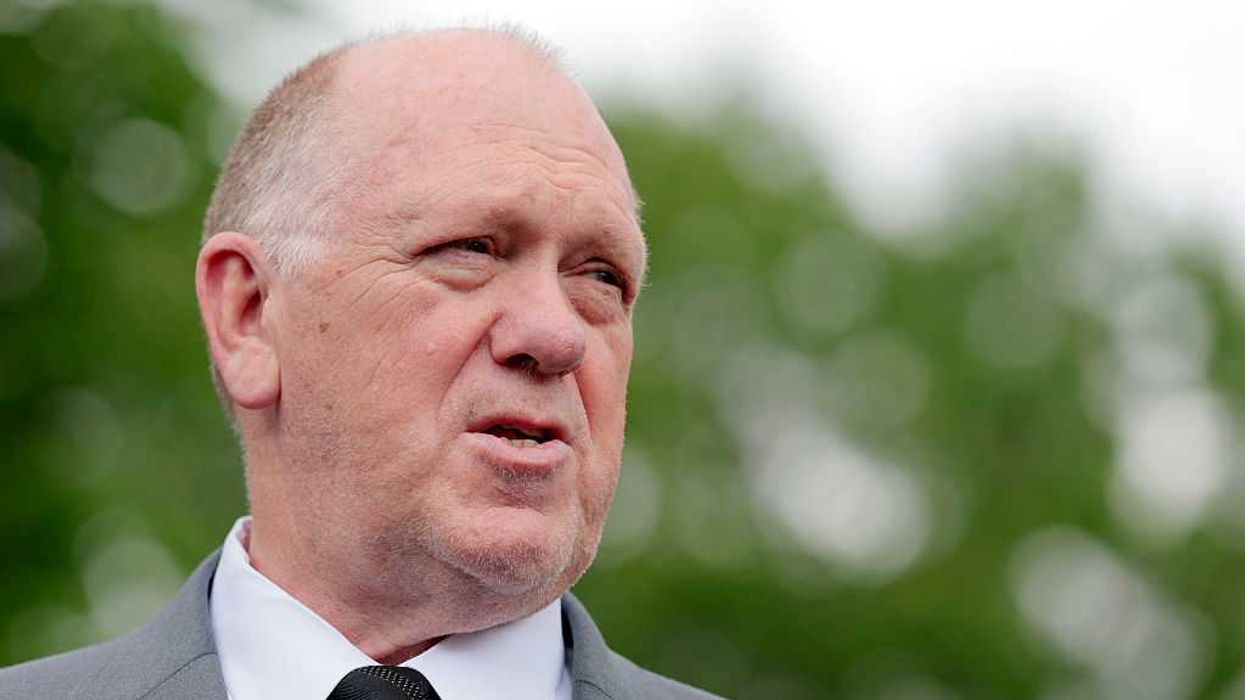History is repeating itself.
Brazilian cotton farmers are currently filing a case against the United States at the World Trade Organization (WTO), claiming that American cotton subsidies are too high. And once again, Uncle Sam is digging deeper into America’s collective wallet in search of “protection money.”
The last time this happened was in 2004. The fact that Brazil won the case did not stop Washington politicians from shoveling taxpayer subsidies into the influential domestic cotton industry. Brazil threatened to retaliate, warning that it would impose steep tariffs on U.S. products coming into Brazil unless the U.S. cut back its market-distorting cotton subsidies.
 In this Sept. 6, 2012, photo, a tractor is used to farm in cotton field along a border fence that passes through the property in Brownsville, Texas. Credit: AP
In this Sept. 6, 2012, photo, a tractor is used to farm in cotton field along a border fence that passes through the property in Brownsville, Texas. Credit: AP
Reducing or eliminating the sky-high subsidies that it provides to domestic cotton producers would have been the right thing for the U.S. to do. That’s not what happened.
The federal government instead cut an even bigger check.
The U.S. paid $34.3 million up front to the cotton producers in Brazil, and it continues to pay $147.3 million to the “Brazilian Cotton Institute” each year – a quid pro quo arrangement that allows the U.S. government to continue its misguided policy of subsidizing domestic cotton producers.
The end result is an expensive international “double dip” in which the federal government puts American taxpayers on the hook to subsidize cotton farmers here at home while also bribing cotton farmers in Brazil.
Fast forward to the most recent Farm Bill, which President Barack Obama signed into law this past February.
 In this Sept. 6, 2012, photo, cotton farmer Teofilo Junior Flores drives his truck along the border fence that passes through his property in Brownsville, Texas. Credit: AP
In this Sept. 6, 2012, photo, cotton farmer Teofilo Junior Flores drives his truck along the border fence that passes through his property in Brownsville, Texas. Credit: AP
One of the provisions in this bill was a new shallow-loss revenue protection program, called the Stacked Income Protection Plan, which provides an even more lucrative subsidy for domestic cotton producers. Meanwhile, the federal government stopped making its monthly payments to the Brazilian Cotton Institute in October, citing budget pressure from sequester cuts.
Cotton farmers in Brazil now claim that the subsidies in this program will distort global cotton markets even further than the direct payment subsidies for cotton they replaced. If the past is any indicator, the WTO is likely to side with Brazil.
They say that those who fail to learn from history are doomed to repeat it. So may be the case of the U.S. and our sky-high cotton subsidies.
The United States needs a better agricultural policy than bribing foreign producers with hundreds of millions of taxpayer dollars to the detriment of American consumers. American taxpayers deserve a farm policy that puts their interests first.
Too bad that Congress missed this opportunity with the most recent, largely reform-free Farm Bill, choosing instead to lock in a trillion dollars of corporate welfare and unchecked food stamp spending for the next decade.
Christine Harbin Hanson is the issues campaign manager at Americans for Prosperity, the nation’s premier free market grassroots organization, where she sharpens her unique insight on the economic issues that matter most to Americans.
–
TheBlaze contributor channel supports an open discourse on a range of views. The opinions expressed in this channel are solely those of each individual author.


 In this Sept. 6, 2012, photo, a tractor is used to farm in cotton field along a border fence that passes through the property in Brownsville, Texas. Credit: AP
In this Sept. 6, 2012, photo, a tractor is used to farm in cotton field along a border fence that passes through the property in Brownsville, Texas. Credit: AP






